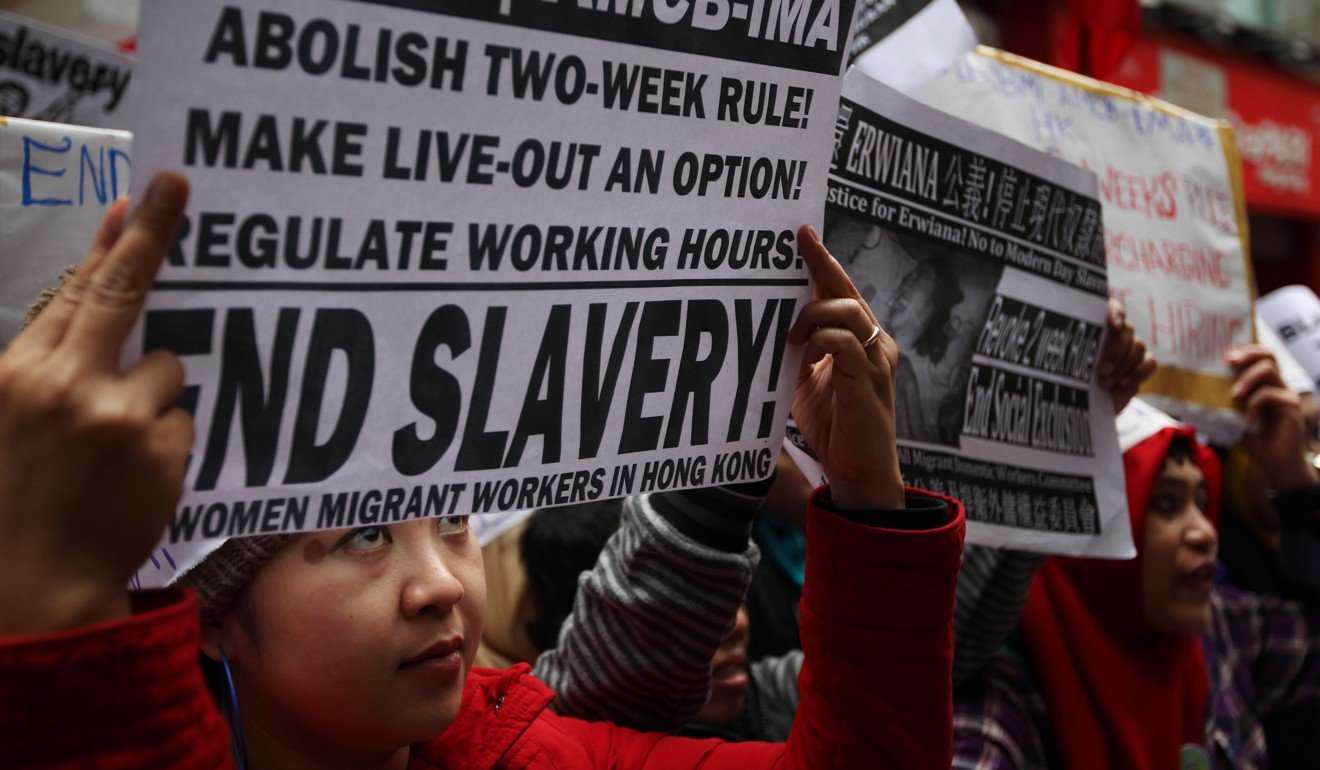
Helper claiming work led to schizophrenia challenges Hong Kong policy requiring maids live with employers
In a writ, she argues the ‘live-in requirement’ is discriminatory and irrational
A foreign domestic helper in Hong Kong subjected to “seriously alarming” working conditions that led to schizophrenic episodes has lodged a judicial review against the government’s policy requiring maids live with their employers.
In what is the second challenge of its kind in a year, Sri Lankan national Rankothpedi Durayalage Kamalawathi lodged her legal bid on Tuesday over what is known as the “live-in requirement” against the immigration director, who oversees visa applications for the more than 340,000 domestic helpers in the city.
Her application came just months after another foreign domestic helper, Nancy Almorin Lubiano, lodged a separate judicial review to challenge the same policy, which domestic workers have often argued leaves them susceptible to abuse.
The Sri Lankan’s court writ, filed by her legal representative from the firm Daly and Associates, urged the High Court to declare that the live-in requirement went beyond the Immigration Ordinance, and was unconstitutional under the Bill of Rights, which prohibits servitude and forced labour.

It further contended the policy was unconstitutional under the city’s Employment Ordinance, which guarantees safe and healthy working conditions, adequate rest, limits on work hours and periodic holidays.
The writ asked the court to declare the live-in rule discriminatory and “irrational”.
According to the present writ, Kamalawathi was granted a domestic helper visa to work in Hong Kong on November 21, 2012, after she had worked in Dubai for 18 years.
Her financial situation was and remains desperate
“As a person with limited education and a widow, her financial situation was and remains desperate,” the document stated.
Although she was given a “standard contract”, Kamalawathi saw her wages reduced to below the minimum wage and her statutory holidays cut back after she arrived in Hong Kong. She was also required to work for her employer, Ng Fan-ying, at multiple premises, including commercial ones.
In a separate civil legal action she lodged earlier, the helper claimed to have suffered injuries caused by her employer.
The writ on Tuesday said Kamalawathi eventually succumbed to “serious psychotic episodes”. She was diagnosed with acute polymorphic psychotic disorder, giving rise to symptoms of schizophrenia associated with “acute stress”.
In addition, she suffered from serious auditory hallucinations, and was hospitalised between March 14 and April 7 last year, according to the writ.
Police did not charge Ng with any criminal offences, but concluded the employment conditions were “seriously alarming”. Meanwhile, immigration and labour officials were conducting investigations.
“It was only after a year of therapy and medication that [Kamalawathi] has now been able to provide instructions to complete her statement,” the writ stated.
Solicitor Patricia Ho, of Daly and Associates, said the live-in policy not only subjugated vulnerable foreign domestic helpers to the command and control of their employers, but also robbed the employers of the right to decide who could live with them.
Indonesian Migrant Workers Union head Sringatin urged city officials to ensure the health and safety of foreign domestic workers.
“It’s time for the Hong Kong government to show the political will to give better working conditions,” she said.

